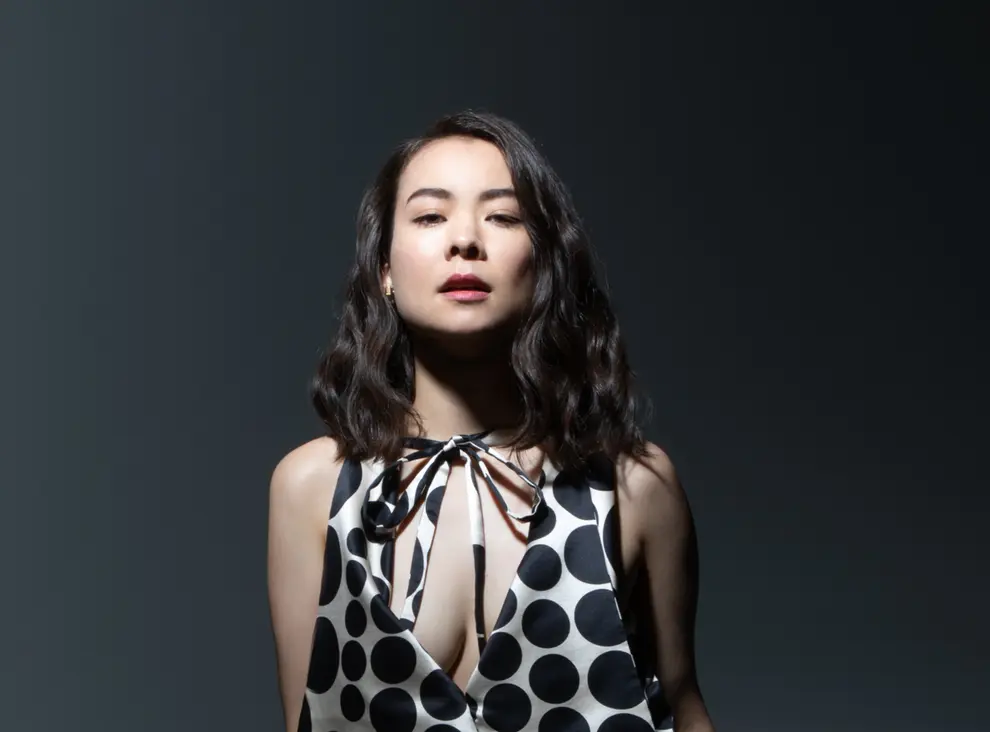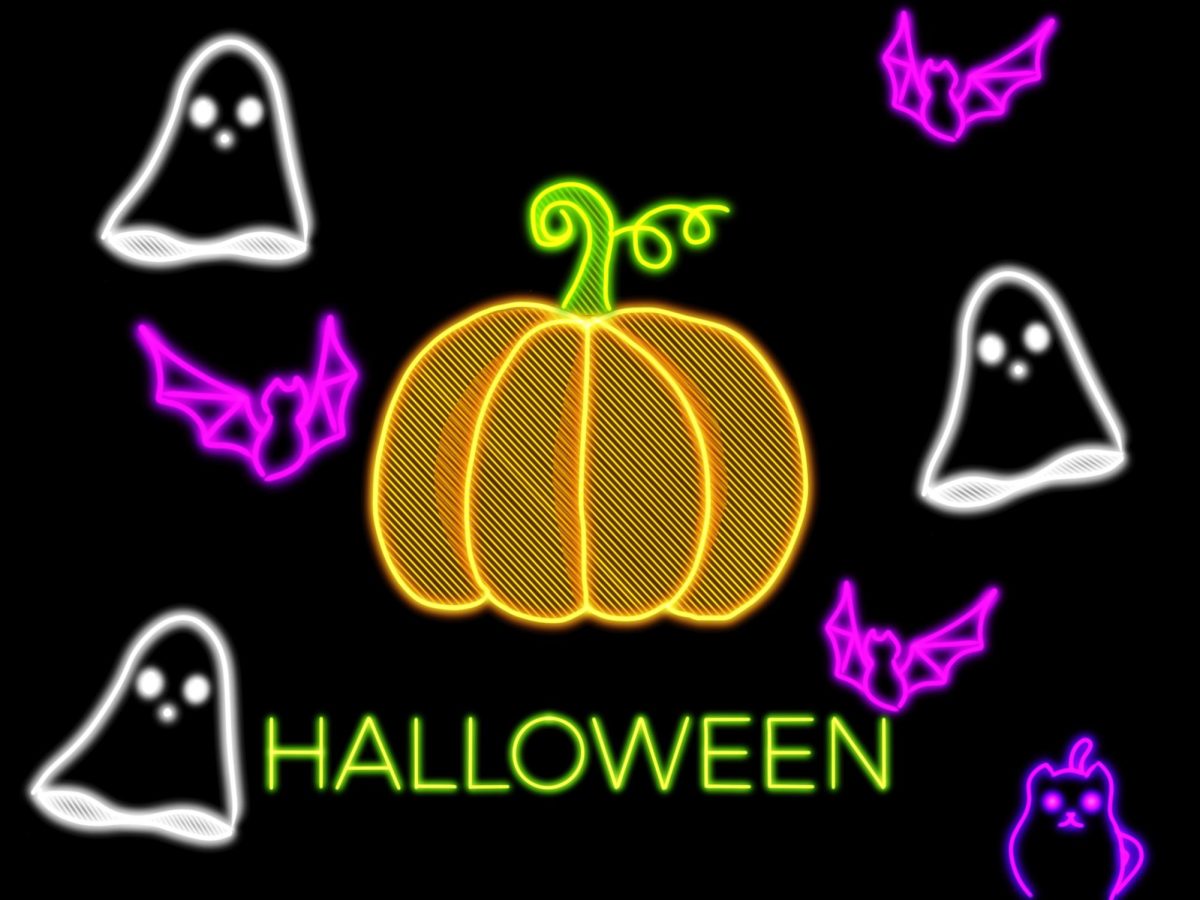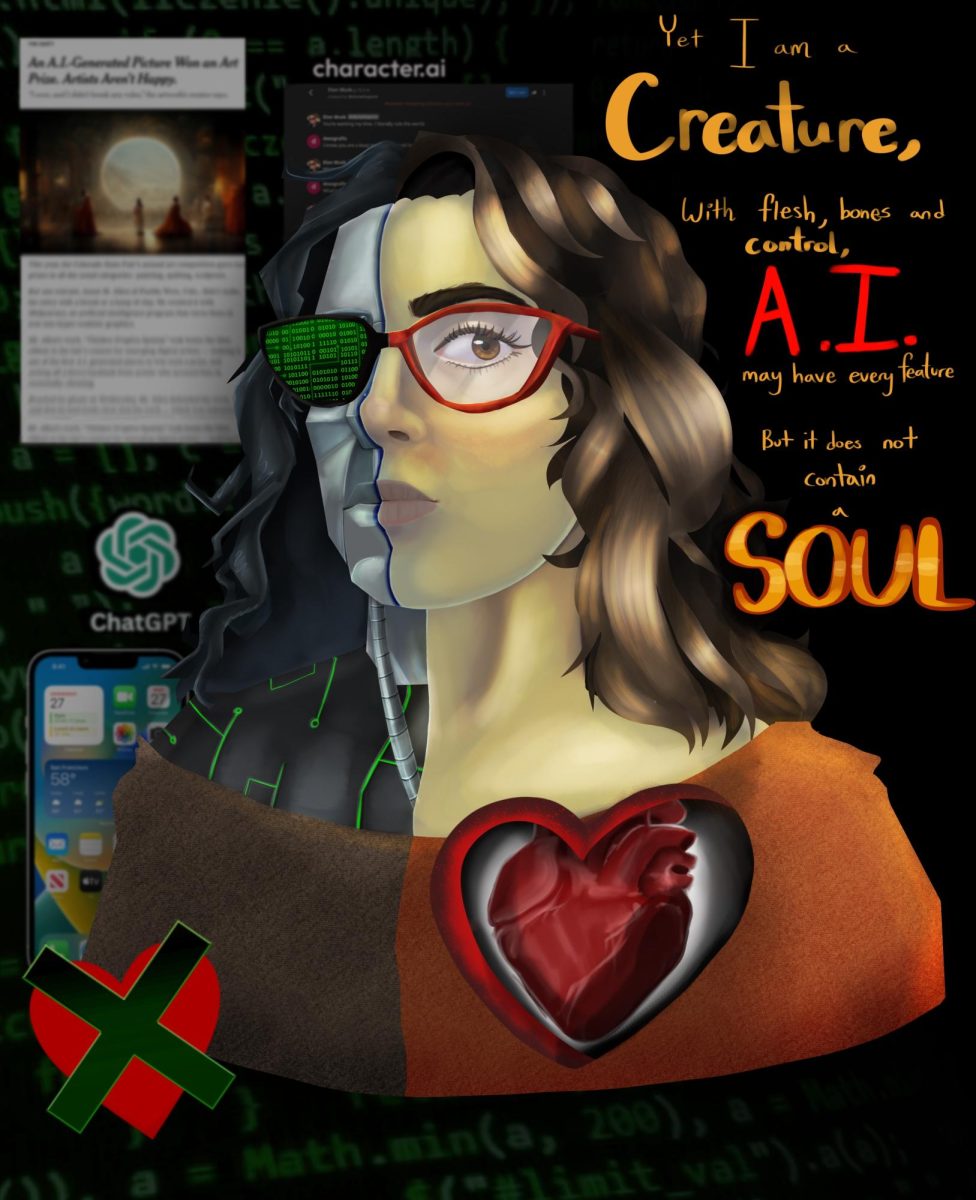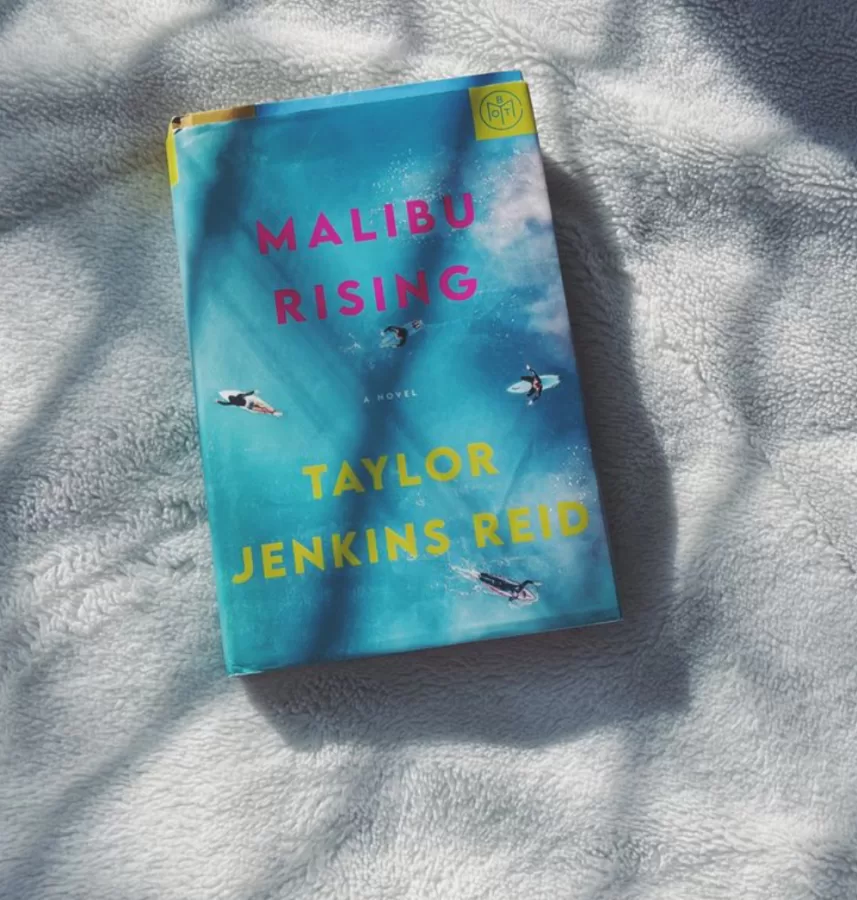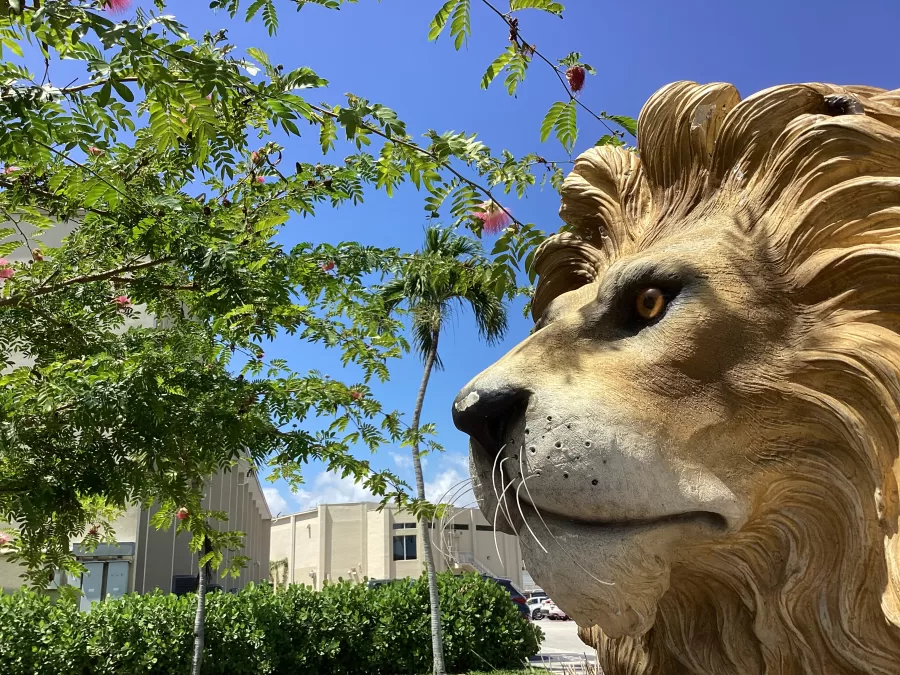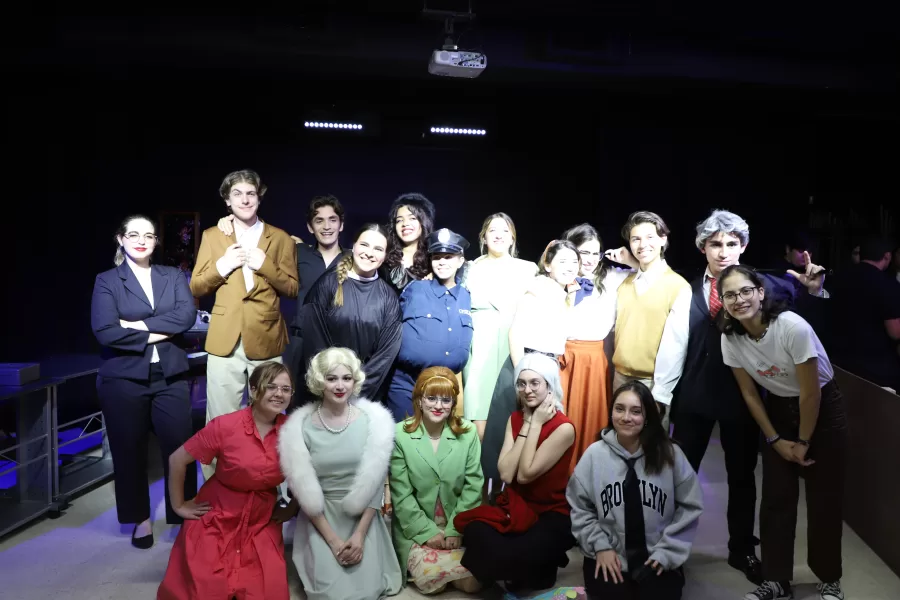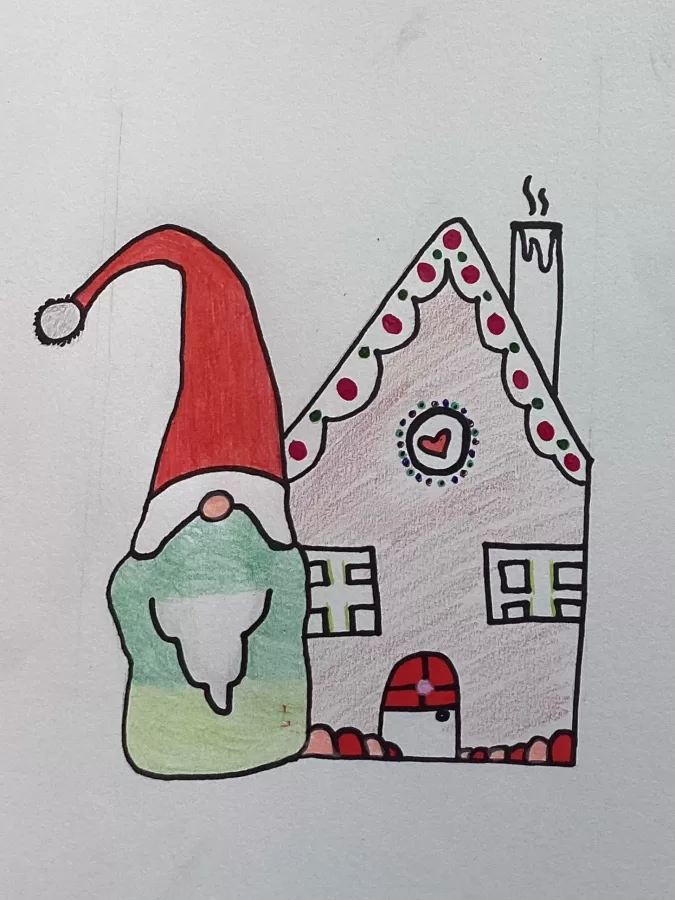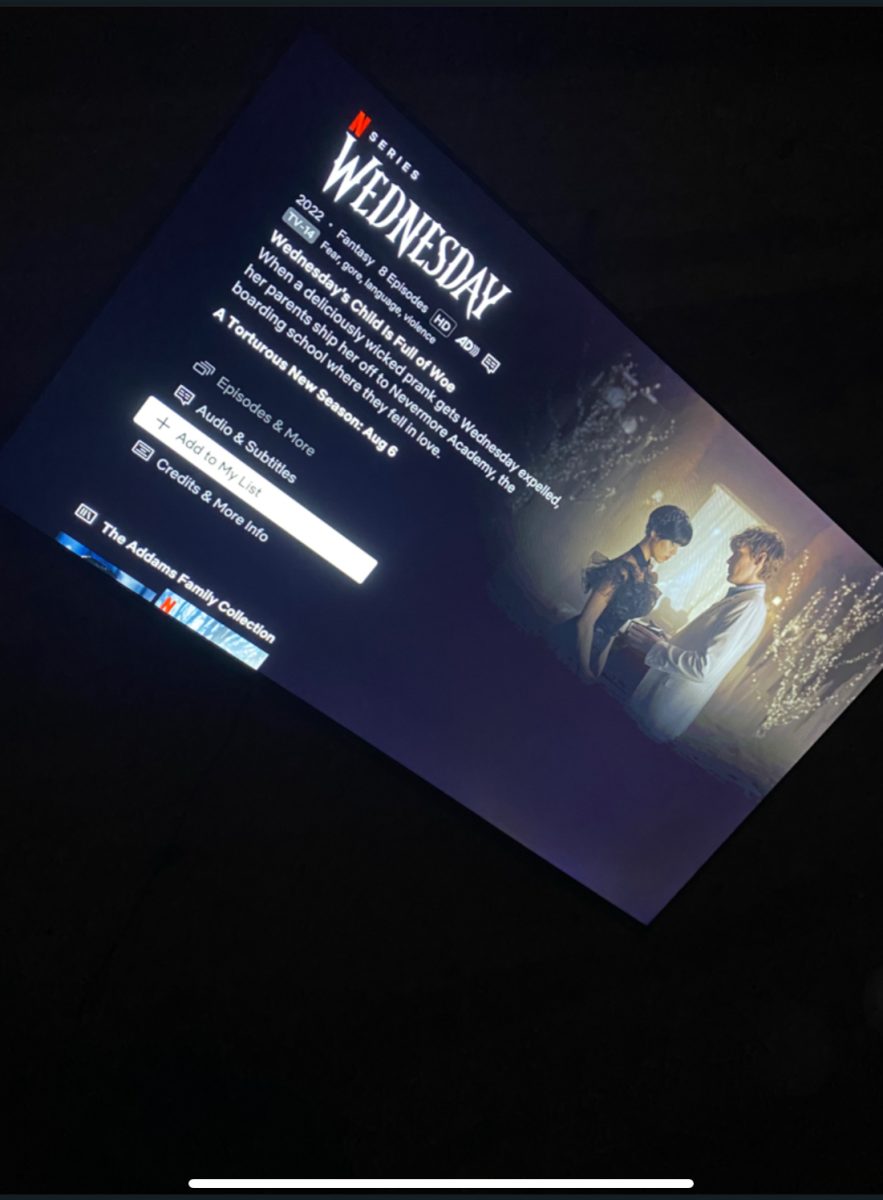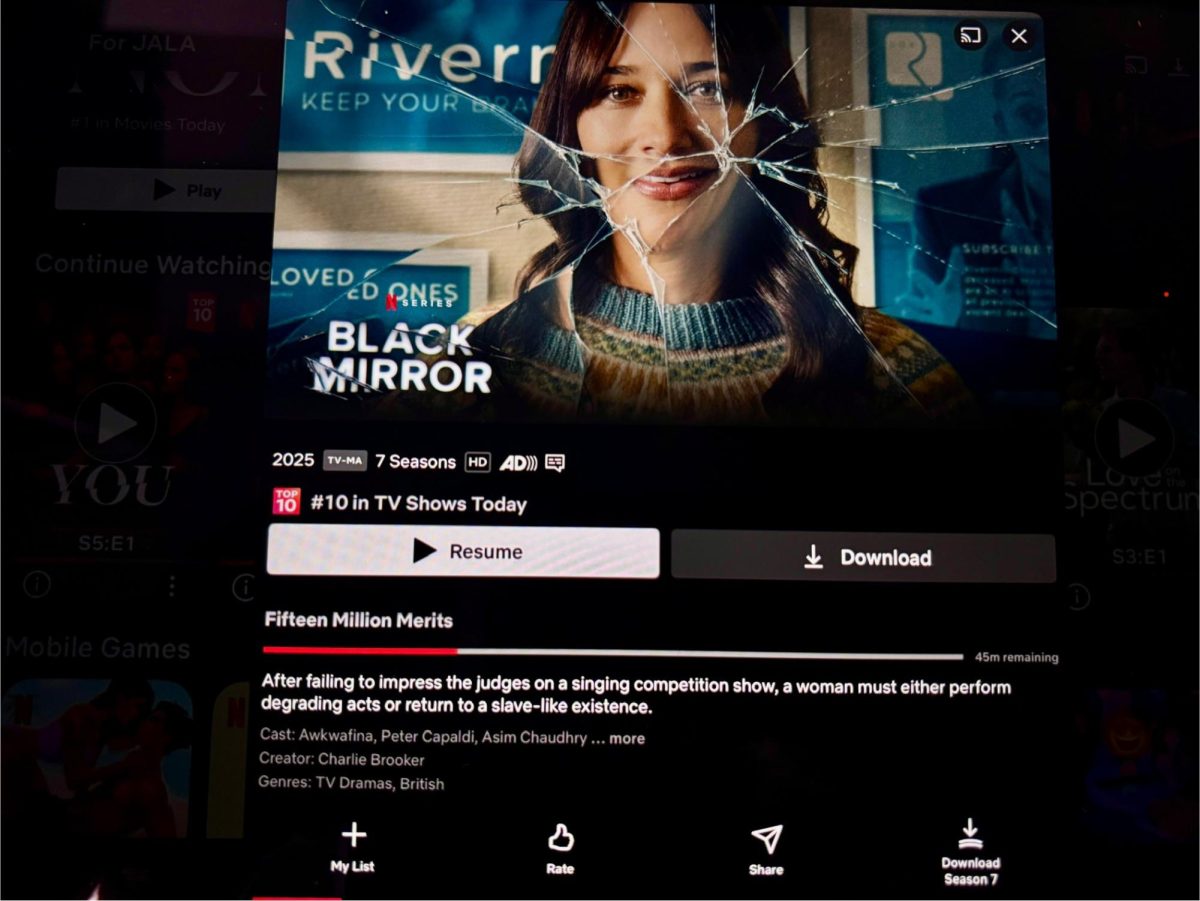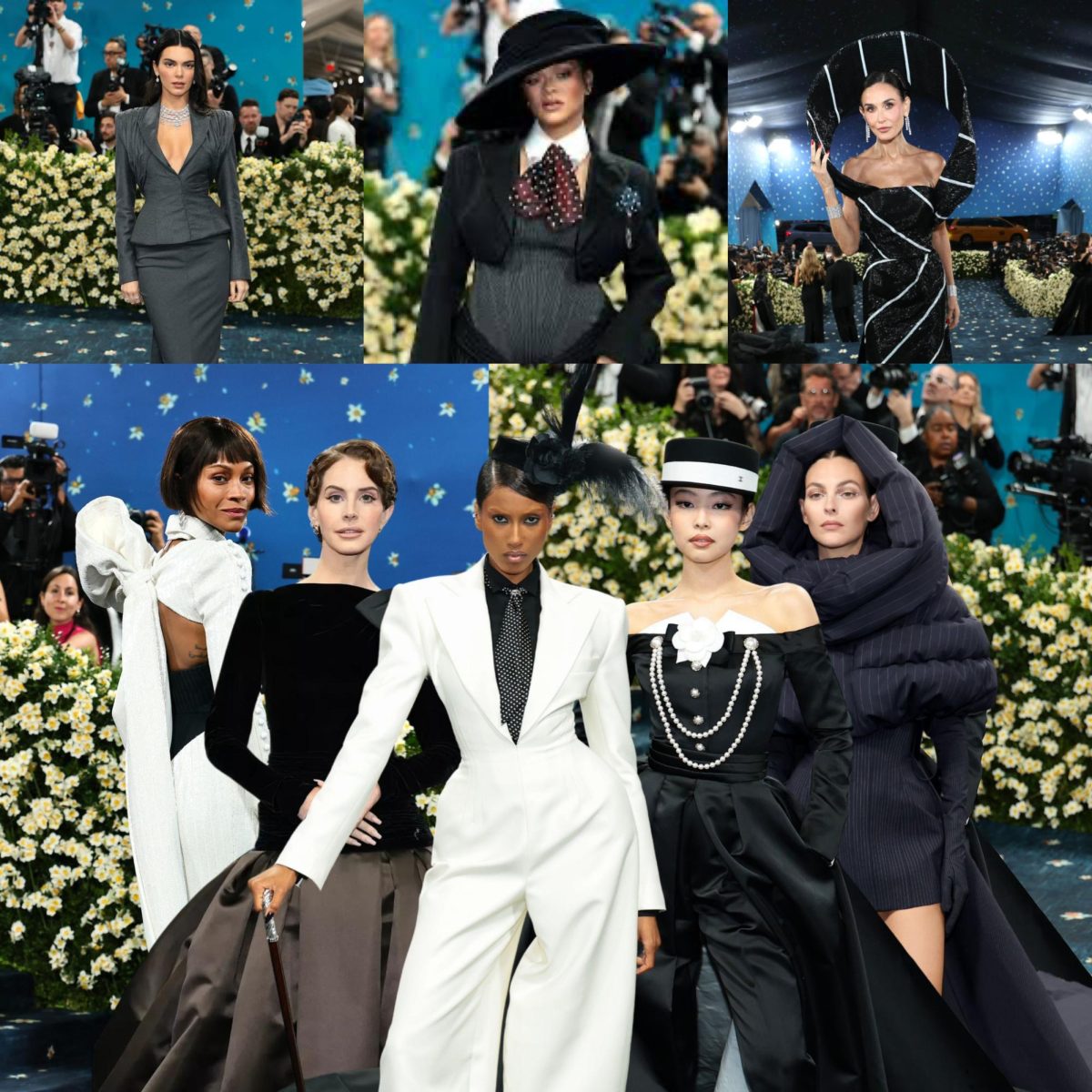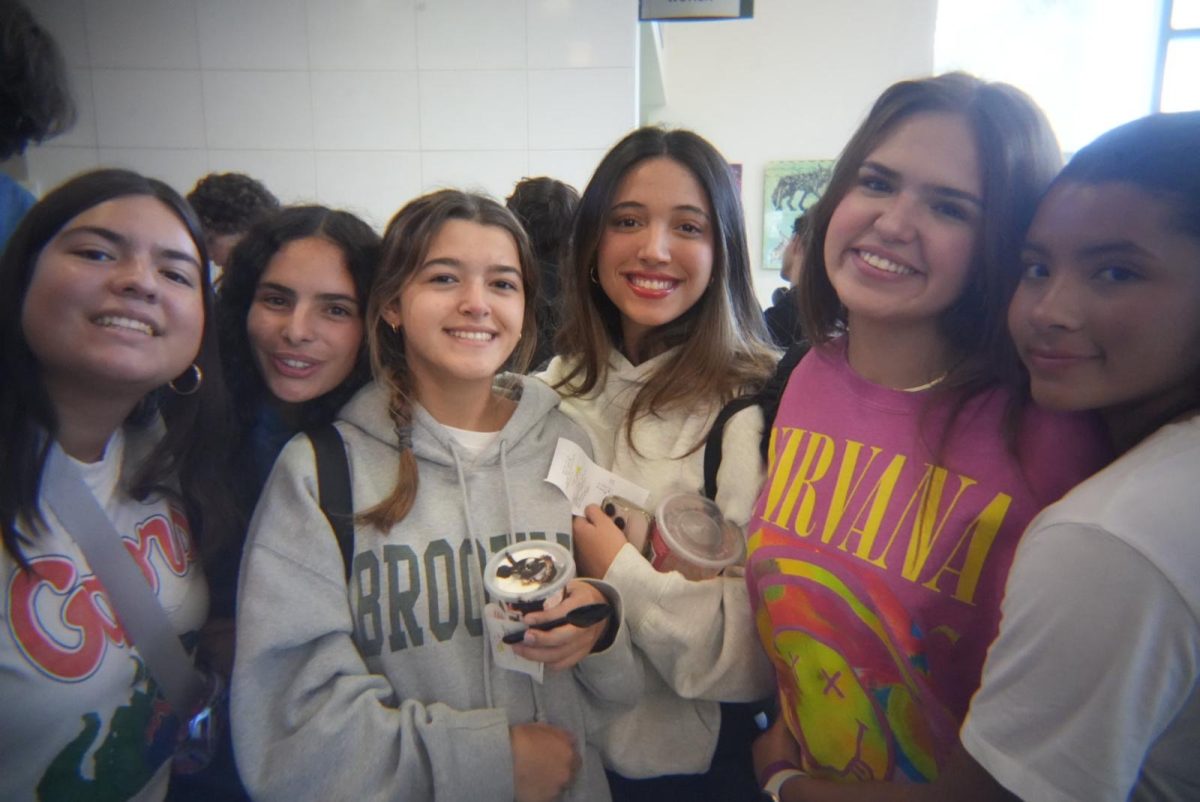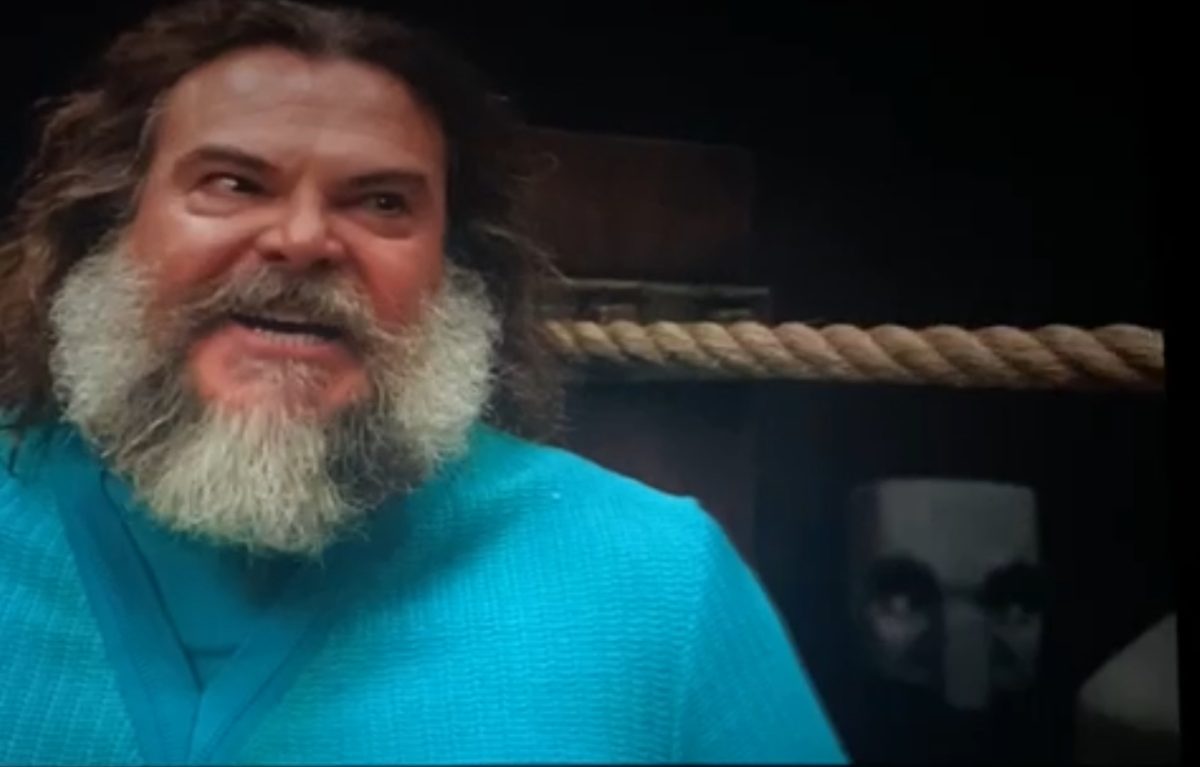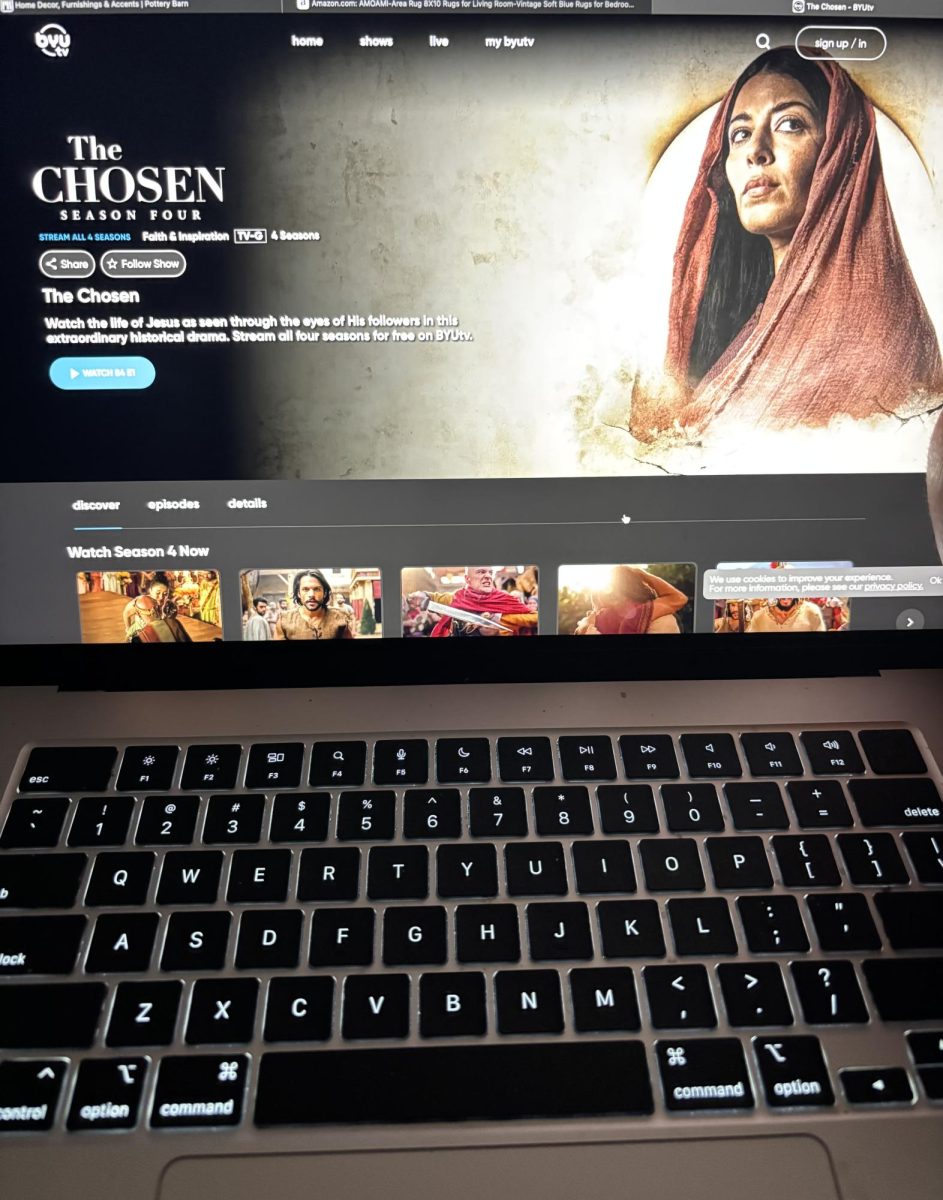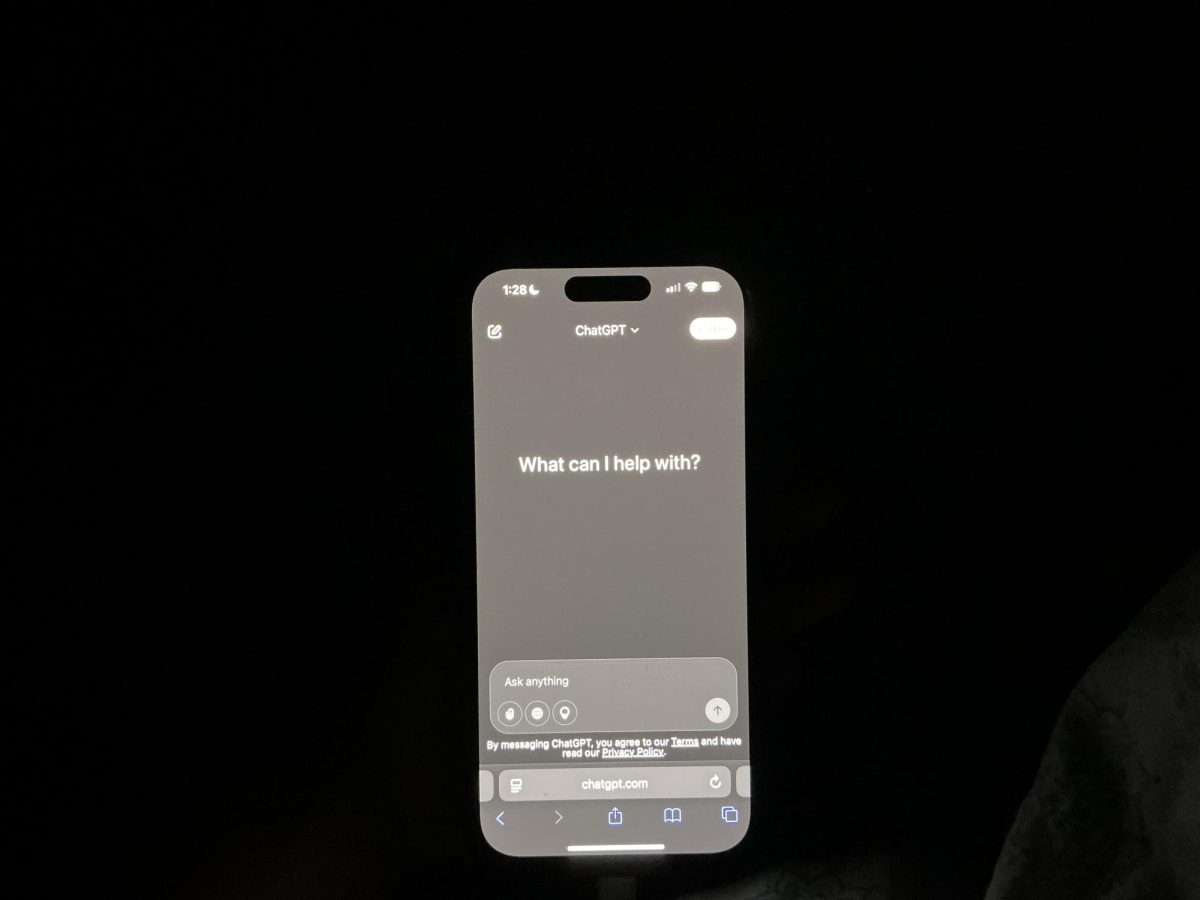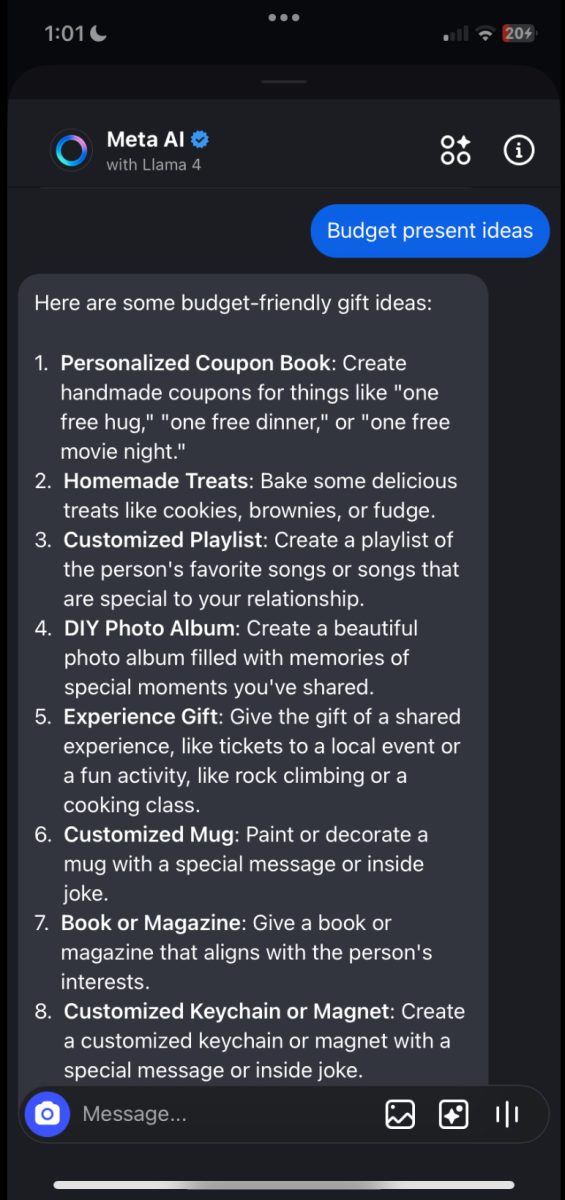Earlier this year, indie singer-songwriter Mitski Miyawaki (most well known as just “Mitski”) dropped her sixth album, Laurel Hell. Considering this is the first album she’s released since 2018, many are ecstatic for her return, myself included. Mitski is renowned for her variety in musical sound, from her more classically influenced album Retired from Sad, New Career in Business to her raw rock-influenced sound in Bury Me at Makeout Creek. One thing that remains constant about her music, however, is the emotional impact she leaves on her listeners. Mitski delves into topics such as her experiences as a woman of color, her self-esteem, heartbreak, and her blossoming into maturity.
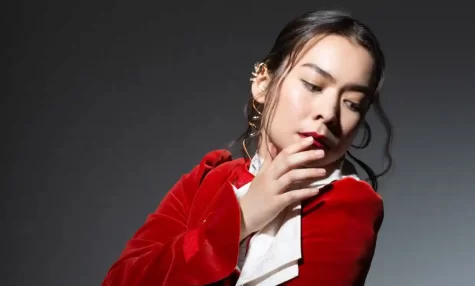
Leading up to the album’s release, Mitski released the single “Working for the Knife,“ immediately sparking enthusiasm. Empathetically yet miserably direct, Mitski elucidates raptures from longtime fans and casual listeners alike with her new album, Laurel Hell.
The album opens with “Valentine, Texas,” named after a real town in Texas, anointed due to its 1882 founding on Valentine’s Day. Mitski has always had beautifully impactful opening songs (such as “Liquid Smooth” in Lush or “Goodbye, my Danish Sweetheart” in Retired from Sad, New Career in Business) so my expectations were rather high for this song. While “Valentine, Texas” isn’t the type of song I’d typically go out of my way listening to, it’s a song that I was utterly captivated by. It was the perfect hook to this masterpiece of an album. Mitski’s music is typically up to the interpretation of the listener, and to me, this song displays a tragic message of yearning for something that is dismally out of reach. She hungers to be anywhere excluding where she is now. Longing seems to be a reprised theme throughout this entire album and I believe “Valentine, Texas” sets that up marvelously with its ravishing usage of synths and powerful chord progressions.
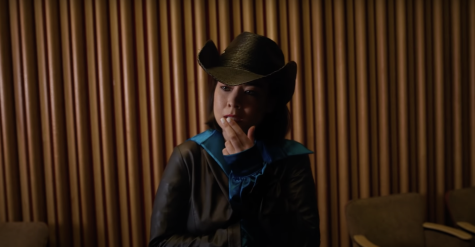
The second song of the album is “Working for the Knife,” which was also the single that preceded the release of Laurel Hell. The absolute chokehold this song had on me is indescribable. One thing I’ve noticed about a lot of Mitski’s music is that it’s far from my typical music taste. I’m not the type of person to enjoy slower, melancholic songs like the ones Mitski produces. However, she manages to pull me in through her beautifully formulated lyrics and engrossing instrumentals. In “Working for the Knife,” Mitski delves into her remorse and labors as a songwriter. The opening line of the song, “I cry at the start of every movie– I guess ’cause I wish I was making things, too, but I’m working for the knife,” could refer to the fact that Mitski originally studied film in college; This line could be Mitski desiring she had stuck with that career path rather than choosing songwriting and laboring for “the knife” she speaks of. “The knife” could represent a multitude of subjects, from harsh capitalist coercion that suppresses artistic expression to the ruthless impact that mental illness could have on a person’s capacity to create art. This song overall discusses how Mitski finds herself hurting herself psychologically by fulfilling her constant need to create, forever feeling bound to a contract rather than creating out of her own free will. She wishes she could make things for herself rather than constantly focusing on how to please an audience and industry that is impossible to satisfy. This song leaves me feeling a tad guilty that I enjoy this album so much, but perhaps that was the intention. It feels like a cry for help.
The song that follows is “Stay Soft,” which is possibly one of my favorite songs on the album. It has a much more upbeat tempo than the previous two songs, keeping the synth influence while adding in a fun-sounding dance beat. It’s deceivingly pleasant to listen to until you focus on the lyrics; this is intentional, as Mitski originally wrote the song to sound much more melancholic before “(couching) the depressing lyrics in an inviting dance beat, which is a trick people have used for hundreds of years. Perhaps the title, “Stay Soft,” also alludes to this method of softening up a song to make it more appealing to the listener. This song, overall, is about a relationship that starts off inviting and slowly morphs into something unhealthy. In order to keep yourself from getting hurt, you can’t allow yourself to stay soft– You have to harden up and endure the toxicity of the relationship you have inevitably trapped yourself in. This song has some of my favorite lyrics in the album, such as the inviting “open up your heart–“ followed by the conflicting “–like the Gates of Hell”.
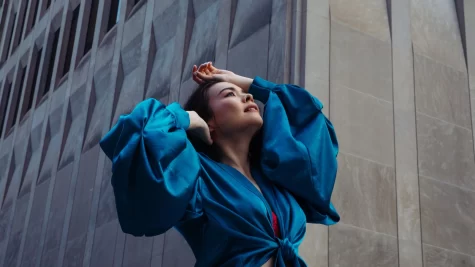
The fourth song on the album is titled “Everyone.” This song relied on mostly gentle percussion for its instrumental and momentarily introduced a piano melody at the end. While it’s not the song I found the most fascinating, I was still engaged. It slowly grew to become more and more intense and it was almost eerie to listen to. The song seems to be about Mitski’s rise to fame and how taxing it was on her. Being eager for this stardom, she offers everything to the enigmatic music industry, which is symbolized by the dark. Before she knows it, she’s shoved into the limelight with little to no preparation. Mitski, like countless other celebrities, wasn’t ready for the pressure that would come with putting herself out into the public.
The song that follows is “Heat Lightning.” This song has one of the most stunning instrumentals I have ever heard in my life. It’s so simple, yet so effective. This song is about insomnia and the stress and turmoil it could bring to a person; it’s fitting that this song sounds so restless. It’s a song that emphasizes Mitski’s tendency to overthink and her frustration with being unaware of what the future can bring her. The beginning of this song has a similar vibe to “Everyone,” starting rather slow and reliant on percussion. Slowly, a piano emerges followed by the usage of strings, creating a beautiful orchestral sound that reminds me of Mitski’s earlier albums. The song builds to a peak, anticipating a climax. However, instead of reaching this climax that it’s been building up to, the song comes to a halt and an instrumental follows. This could indicate her sense of powerlessness in the midst of the universe’s grandeur, unable to anticipate what life has in store for her.
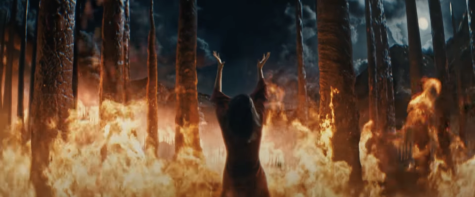
The next song, “The Only Heartbreaker,” has a similar vibe to “Stay Soft” instrumental-wise, having clear 80s pop inspiration. Likewise to the aforementioned song, “The Only Heartbreaker” also delves into relationship struggles. In this case, Mitski feels as if she is in a state of inferiority in this relationship, feeling as if she’s constantly in the wrong. In a statement for the Rolling Stone, Mitski explains that she “also wanted to depict something sadder beneath the surface, that maybe the reason you’re always the one making mistakes is because you’re the only one trying”. In this relationship depicted, she’s the one taking the culpability for all missteps. She’s the one taking the hindrance of this one-sided relationship. This song, alongside a handful of others on this album, has a beautiful music video to go along with it. In this video, Mitski is seen standing in the midst of a forest fire in a striking red dress. As the video progresses, the fire burns brighter and much more violently, showing Mitski spiraling out of control. The forest could represent the relationship depicted in this song and how it’s slowly falling apart; Mitski being at the center of the forest fire could represent how she’s the one to blame for this disaster, despite her efforts. This imagery could also be a reference to her song “Burning Hill” from her early album, Puberty 2, in which she sings “I am a forest fire, I am a forest fire. I am the fire and I am the forest, and I am the witness watching it.”
The seventh song, “Love Me More”, is among my favorite songs on this album. By this point, you can tell this album is very heavily influenced by 1980s pop and dance music, taking inspiration from disco sensations such as ABBA and George Michael. Mitski frequently uses a powerful combination of sad lyrics and happy instrumentals, as previously shown in “Stay Soft” and “The Only Heartbreaker”, sticking to her typical “sad girl” demographic while also drawing in a whole new audience of folks who have a soft spot for 80s-style tunes (such as myself). A theme that is brought up in this song is Mitski’s identity, which she frequently brings up in her music (such as in “Your Best American Girl” from Puberty 2), which could be seen from the first line in the song: “If I keep myself at home, I won’t make the same mistake that I made for fifteen years– I could be a new girl, I will be a new girl”. This line also refers to Mitski’s childhood, in which she was forced to move from location to location due to her father’s job; this allowed her to rebuild her self-image everywhere she went. Overall, she struggles with her core identity and figuring out who she truly is, causing her to feel empty as a result. Thus, this song shows how Mitski yearns for someone to love her in order to feel some kind of fulfillment. She is depending on someone else’s love since she does not have that love for herself.
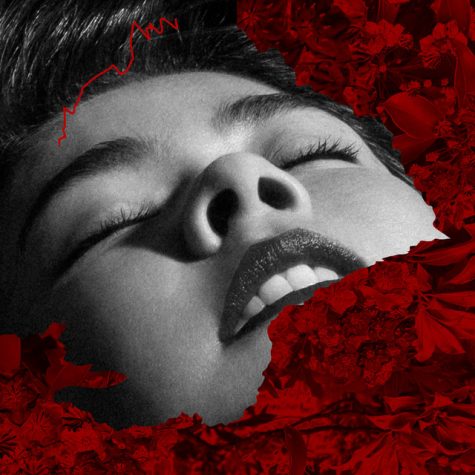
“There’s Nothing Left for You” is the next song on this album. This is another one of her slower songs on the albums. It’s the song with the least amount of streams on Spotify, and while it’s not the type of song I typically find myself listening to, it’s a beautiful song. Placing this song right after “Love Me More” was an incredible choice and those two songs put together could really tell a story. While the previous song talked about yearning for love and longing for somebody to pour affection on to, this song is about feeling worn out, feeling as if there’s no more love to give. It has a beautiful yet simple chord progression and it’s overall very minimalistic on the ears until halfway through the song, where a heavier percussion and dramatic guitar sound are introduced; it’s a wild contrast from the beginning of the song, yet I think it builds up to this climax beautifully. Before the song comes to a closing, it returns to this soft minimalistic instrumental which soothes your ears.
The next song, “Should’ve Been Me,” is my number 1 favorite song on this album and perhaps one of my favorite songs Mitski has ever written. I’ve seen a lot of mixed opinions on this song, which was rather surprising to me! I thought this would definitely be a fan favorite, but it seems like that’s not the case. Many listeners complain that Mitski’s music was better when it had a more lamentable sound, using this song as a prime example of Mitski’s music quality declining due to its upbeat melody. Mitski’s target audience, as stated before, is the “sad girl” demographic, and many believe that she’s straying away from this audience due to the more experimental style of music this album has. However, I believe this album has some of the most heartbreaking lyrics I have ever heard in my entire life– The only difference is that they’re masked with groovy tunes that make you want to get up and dance amid your sob session. Throughout the song, Mitski continually apologizes for being emotionally unavailable during one of her past relationships, blaming herself for her partner’s faults and finding herself comparing herself to her previous partner’s new lover, who seems to struggle less than Mitski in a relationship. Guiltily, Mitski sings “I’m sorry, it should’ve been me.”
The song that follows is “I Guess.” It’s a rather short song, and upon first hearing it I thought this would be the closing song of the album. It’s the shortest song on the album with only two verses, yet it’s extremely effective nonetheless. I especially love the reverb sound they put on Mitski’s voice in this song– It makes me feel as if I’m listening to a siren’s song. This entire album has focused on Mitski’s attempts with her relationships and her endeavors on letting them go; however, “I Guess” leaves a feeling of catharsis, where Mitski finally accepts the end of a relationship, despite struggling to figure out where to go from there. She ponders the idea of playing with her identity once more, desperate to fit a mold that will be loved by someone. Despite all this, she ends the song with gratitude, singing “From here, I can tell you, ‘Thank you.” While this song could be interpreted as being about Mitski’s relationship with another person, I like to think of it as it being about Mitski’s relationship with music; in fact, I think all of the album’s songs could be interpreted with that meaning, especially if you connect them with “Working for the Knife.”
Alas, the album closes with “That’s Our Lamp.”.This song is absolutely beautiful. It has that 80s-inspired groove yet it’s combined with a subtle yet gorgeous orchestral sound. The song opens with a description; Mitski has been arguing with her partner, and in a fit of anger, Mitski runs out the door. Her partner follows her and assures her that they love her, yet Mitski feels as if they don’t love her like they used to. She sings, “But I walk down and up and down and up and down this street,” using repetition to show how often this cycle occurs; they fight, they make up, and then it repeats. She compares something as simplistically domestic as a lamp to the light of the moon, emphasizing how this lamp provided brightness in times of darkness. This lamp could represent a kind of familiarity which kept her from breaking off the relationship with her partner. Mitski feels like she’s in the dark when she’s not with her partner. The solace of intimacy brightened up and nullified the negative aspects of the relationship. However, a mere lamp can only light up so much. The comfort that she finds in this lamp eventually flickers out, leaving her in seclusion once more.
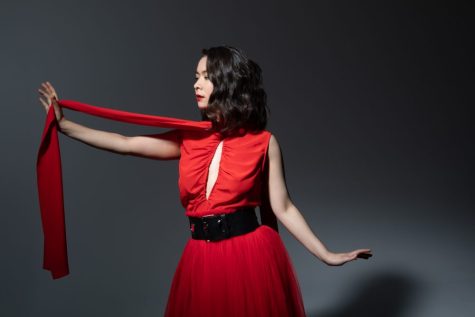
Overall, this album is incredibly beautiful and each song tells a story that could be interpreted in a plethora of ways. Of course, every description listed here is simply how I interpreted these songs. The alluring thing about Mitski’s music is that there are hundreds of ways to interpret a song, making it easy to relate and sympathize with the singer by connecting her lyricism with your own experiences. While it’s rather different from Mitski’s usual sound, it’s a breath-taking album with a familiar melancholic vibe that Mitski fans adore. It’s the perfect album for anyone who likes a good cry (or for anyone who just likes to get groovy, like me). Everyone should give this album a chance if they haven’t already.


